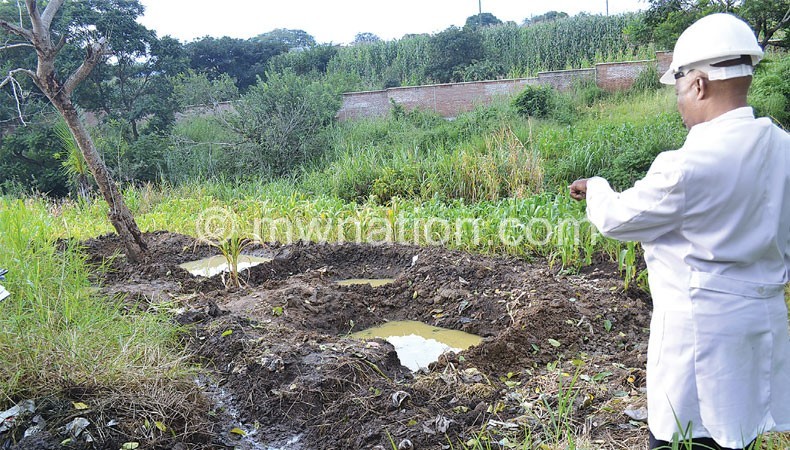Cepa urges organisations to have environmental contingency plans

Centre for Environmental Policy and Advocacy (Cepa) has urged government and non-governmental organisations in the country to have environmental contingency plans in place so that it guides them to effectively respond to disasters that have immediate impact on the environment.
Cepa programme officer Evelyn Nkhonjera said this recently after inspecting Farmers Organisation Limited (FAL) chemical warehouse in Blantyre which was razed to the ground.
The tour was part of a one Environmental Governance project which Cepa is implementing with support from Tilitonse Fund. The project aims at ensuring that Malawi has a responsive government in environmental crisis.
FAL officials complained about Blantyre City Council’s (BCC) sleazy response to the disaster.
“Imagine, this is the third day, and we have not yet completed. They keep saying their fire vehicles do not have fuel. So we are putting out the fire on our own,” said one of the officials who opted for anonymity.
Nkhonjera said if BCC and FAL had environmental contingency plans, they would not have panicked and struggled to put out the fire.
“The panic is a sign that they were caught unawares. In other words, they were reactive instead of being proactive,” she said.
The late and unsystematic response to the fire saw the debris of chemicals descending into the nearby Naperi River, which flows into Mudi River all the way to the Shire River and finally into the Zambezi River. The water in Naperi River turned yellow in colour, posing an environmental risk to people who use the water downstream for domestic purposes.
Information sourced from the label of one of the chemical bottles stocked by FAL indicates that Metham Sodium (Thiocarbamate) is used to spray in the field to kill weeds, soil fungi and nematodes. The chemical is harmful if inhaled or swallowed. It causes irritation of skin, eyes, nose and throat, and it should be kept away from food, feedstuff and seed.
Beyond that, the smoke that spiraled from the raze let out a foul smell across the city of Blantyre, posing health challenges to those who inhaled it.
However, FAL says although the smoke spread to various parts, people should not worry because it was a white smoke which is not dangerous.
“The dangerous smoke is the one which was dark in colour. If inhaled, it can cause problems and one can fall unconscious. Fortunately, much of the dark smoke went vertically after the raze,” said the official from FAL.
Cepa commended FAL for quickly warning the public against using water from Naperi River and also digging wells to contain the chemical debris from descending into the river.





